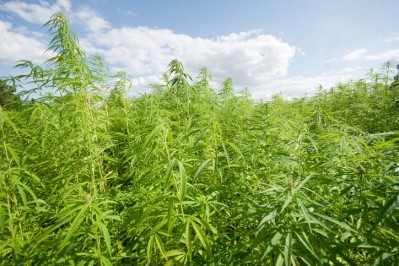US university undertaking research into benefits of feeding cattle hemp biomass

Dr Alan Sams, dean of the College of Agricultural Sciences at Oregon State University (OSU), said its research teams will assess the safety and benefits of hemp byproducts in cattle diets.
The project is entitled: Feeding Spent Hemp Biomass to Cattle: Cannabinoid Residuals, Animal Health, and Product Quality.
The US$299,950 hemp biomass grant was awarded by the US Department of Agriculture’s National Institute of Food and Agriculture (NIFA). In total, that agency announced over US$8.5m in funding last week for 29 research and Extension grants; the projects are all looking to address key challenges in US agriculture.
In addition to the hemp biomass grant, OSU also earned a US$299,999 NIFA grant in relation to research it is carrying out on how to improve farm sanitation practices.
“Innovation in agriculture is central to the sector’s success and resiliency in meeting society’s demand for food, feed, fuel, and fiber. These competitively-awarded USDA NIFA grants to Oregon State University scientists show we continue to advance nationally important research on issues of direct and timely importance to Oregon agriculture,” added Sams.
Building the case for federal approval of the use of hemp biomass on US cattle farms
Commenting on the grant for the hemp study were US senators: Ron Wyden and Jeff Merkley, both Democrats from Oregon; they see the grant aided research work as supporting farmers, not just in that state, but across the US.
“OSU’s world-renowned hemp research plus the crop’s ongoing growth possibilities add up to a potential big win for farmers and ranchers in our state and nationwide to feed their cattle with this biomass byproduct. This OSU research will help to continue building the case for federal approval of hemp biomass on cattle farms, making a natural connection between two signature Oregon products – livestock and hemp,” said Wyden.
“Hemp has quickly become one of our state’s fastest growing crops—generating millions of dollars in revenue and creating reliable jobs across our state,” said Merkley, who worked with Wyden to first legalize industrial hemp in the 2018 Farm Bill. “I’m looking forward to seeing the results of OSU’s research into whether we can use spent hemp biomass as cattle feed and will continue to work to secure the resources Oregonians need to keep leading the way for farmers across America.”
OSU has already carried out research on hemp in animal feed, looking at feeding hemp biomass to sheep, and also evaluating its influence on meat tenderness and shelf life.
US focused research required
Hunter Buffington, executive director of the Hemp Feed Coalition, told us previously that while the 2018 US Farm bill saw recognition for hemp as an agricultural commodity. one of the biggest challenges around securing hemp legislation for feed in the US is the lack of research conducted domestically. “While other countries never stopped feeding it, we have to prove the nutritional profile using American grown and processed hemp and then use published research (when it is available) and work with feed and species experts to create the protocols and methods to conduct the safety and efficacy feed trials in the US."
That group recently put forward a submission for a hemp product to become an approved animal feed ingredient in the US. The application is under review by the Association of American Feed Control Officials (AAFCO) and the US Food and Drug Association-Center for Veterinary Medicine (FDA-CVM). Once approved, hempseed meal and cake can be legally used as commercial feed for laying hens in the US.











